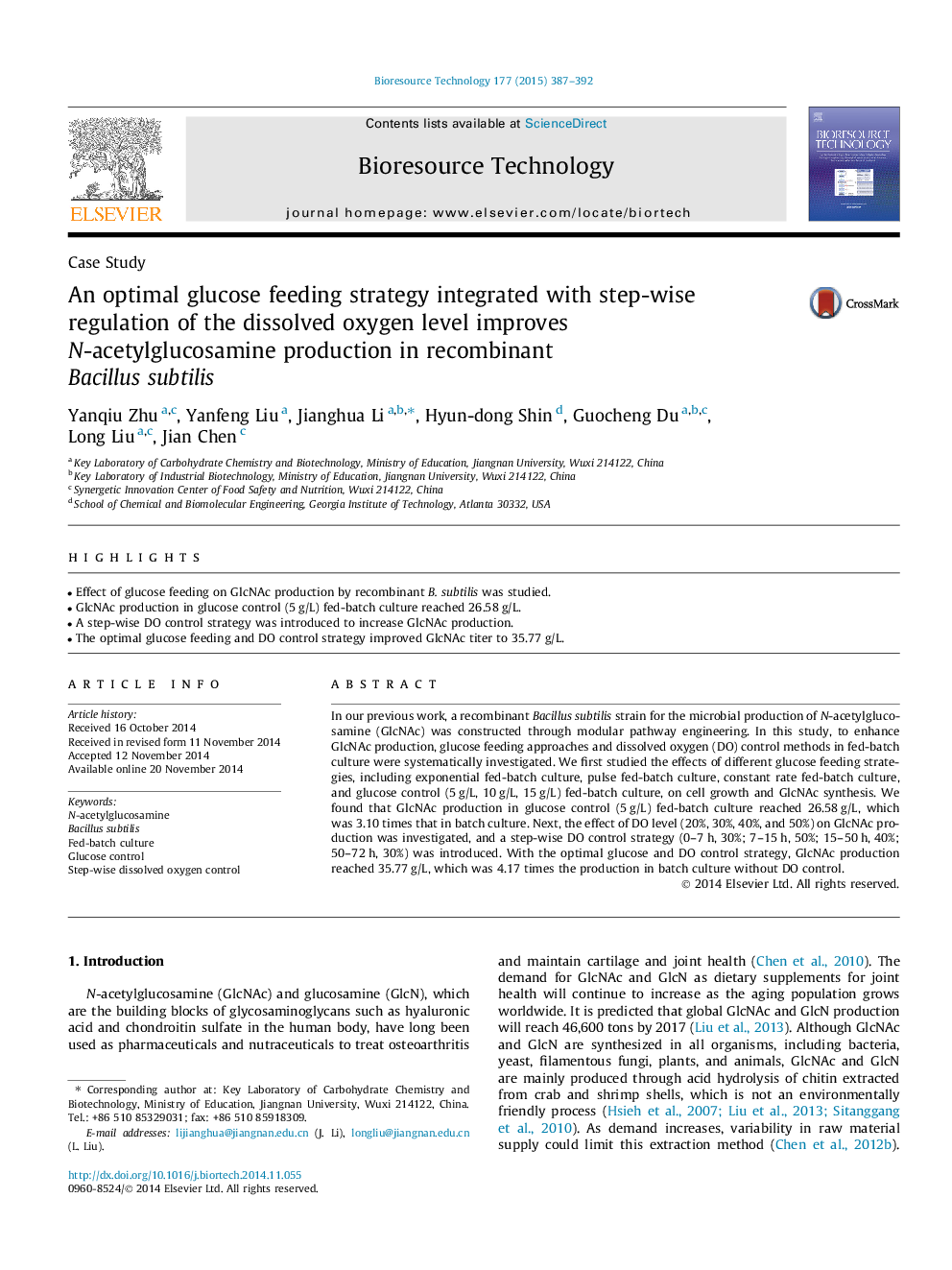| کد مقاله | کد نشریه | سال انتشار | مقاله انگلیسی | نسخه تمام متن |
|---|---|---|---|---|
| 680249 | 1459966 | 2015 | 6 صفحه PDF | دانلود رایگان |

• Effect of glucose feeding on GlcNAc production by recombinant B. subtilis was studied.
• GlcNAc production in glucose control (5 g/L) fed-batch culture reached 26.58 g/L.
• A step-wise DO control strategy was introduced to increase GlcNAc production.
• The optimal glucose feeding and DO control strategy improved GlcNAc titer to 35.77 g/L.
In our previous work, a recombinant Bacillus subtilis strain for the microbial production of N-acetylglucosamine (GlcNAc) was constructed through modular pathway engineering. In this study, to enhance GlcNAc production, glucose feeding approaches and dissolved oxygen (DO) control methods in fed-batch culture were systematically investigated. We first studied the effects of different glucose feeding strategies, including exponential fed-batch culture, pulse fed-batch culture, constant rate fed-batch culture, and glucose control (5 g/L, 10 g/L, 15 g/L) fed-batch culture, on cell growth and GlcNAc synthesis. We found that GlcNAc production in glucose control (5 g/L) fed-batch culture reached 26.58 g/L, which was 3.10 times that in batch culture. Next, the effect of DO level (20%, 30%, 40%, and 50%) on GlcNAc production was investigated, and a step-wise DO control strategy (0–7 h, 30%; 7–15 h, 50%; 15–50 h, 40%; 50–72 h, 30%) was introduced. With the optimal glucose and DO control strategy, GlcNAc production reached 35.77 g/L, which was 4.17 times the production in batch culture without DO control.
Journal: Bioresource Technology - Volume 177, February 2015, Pages 387–392